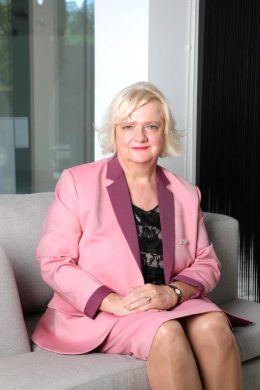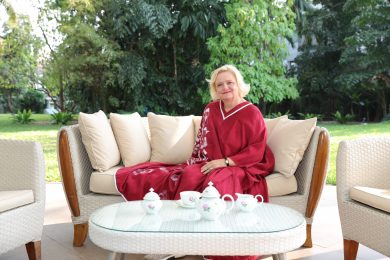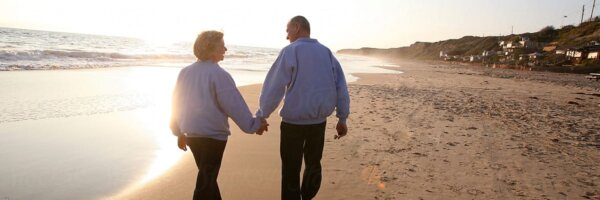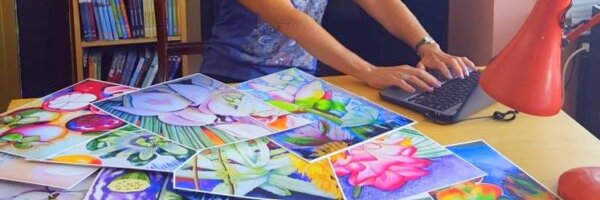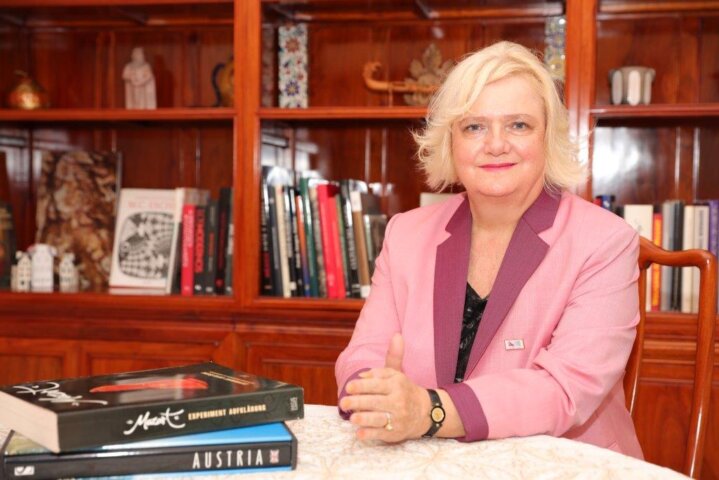
H.E. Dr. Eva Hager The Austrian Ambassador to Thailand
Austria – officially the Republic of Austria – is a country in Central Europe comprising of nine federated states. Its capital, largest city and one of nine states is Vienna. Austria has an area of 83,879km2 (32,386sqm), a population of nearly nine million people and a nominal GDP of $477 billion. It is bordered by the Czech Republic and Germany to the North, Hungary and Slovakia to the East, Slovenia and Italy to the South, and Switzerland and Liechtenstein to the West. The terrain is landlocked and highly mountainous, lying within the Alps; only 32% of the country is below 500m (1,640ft), and its highest point, the “Großglockner”, is 3,798m (12,461ft). German in its standard form is the country’s official language. Small bilingual populations speak also Hungarian, Burgenland Croatian, and Slovene. Austria played a central role in European history from the late 18th to the early 20th Century when it was a multinational great power under the reign of the Habsburg family which covered large parts of central and Eastern Europe. It initially emerged as a Margraviate around 976 and developed into a duchy and later an archduchy. In the 16th Century, Austria started serving as the heart of the Habsburg Monarchy and the junior branch of the House of Habsburg, one of the most influential royal houses in history. As an archduchy, it was a major component and administrative centre of the Holy Roman Empire.
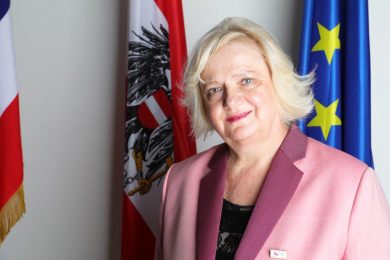 Following the dissolution of this loose association of states, Austria founded its own empire in the beginning of the 19th Century, which became a great power and the leading force of the German Confederation. The latter was created by the Congress of Vienna in 1815 to replace the former Holy Roman Empire. The rivalry between the Austrian Empire and the Kingdom of Prussia led to the Austro-Prussian War and subsequently to the Austro-Hungarian Compromise of 1867 which established the dual monarchy of Austria-Hungary. The assassination of the Austrian Archduke Franz Ferdinand on a visit to Sarajevo/Bosnia by a separatist triggered the First World War which Austria lost. The consequences were the dissolution of the Habsburg Monarchy and the subsequent formation of the first Republic of Austria consisting of most of the German-speaking Danubian and Alpine provinces. Austrian-born Adolf Hitler became Germany’s Head of Government in 1933, a position he used to promote an aggressive expansionism and racial policies which were the root of the Second World War and the Holocaust.
Following the dissolution of this loose association of states, Austria founded its own empire in the beginning of the 19th Century, which became a great power and the leading force of the German Confederation. The latter was created by the Congress of Vienna in 1815 to replace the former Holy Roman Empire. The rivalry between the Austrian Empire and the Kingdom of Prussia led to the Austro-Prussian War and subsequently to the Austro-Hungarian Compromise of 1867 which established the dual monarchy of Austria-Hungary. The assassination of the Austrian Archduke Franz Ferdinand on a visit to Sarajevo/Bosnia by a separatist triggered the First World War which Austria lost. The consequences were the dissolution of the Habsburg Monarchy and the subsequent formation of the first Republic of Austria consisting of most of the German-speaking Danubian and Alpine provinces. Austrian-born Adolf Hitler became Germany’s Head of Government in 1933, a position he used to promote an aggressive expansionism and racial policies which were the root of the Second World War and the Holocaust.
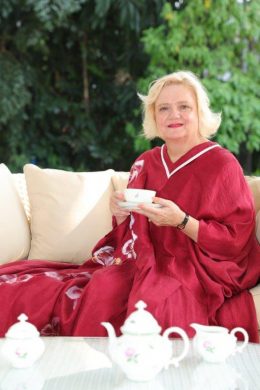 Austria is a parliamentary representative democracy with a President as head of state and a Chancellor as head of government. Major urban areas of Austria include Graz, Linz, Salzburg and Innsbruck. Austria is consistently ranked as one of the richest countries in the world by per capita GDP terms. The country has developed a high standard of living and in 2018 was ranked 20th in the world for its Human Development Index. The republic declared its perpetual neutrality in times of peace and war in 1955. Austria has been a member of the United Nations since 1955 and joined the European Union in 1995. Since 1979, Vienna is one of the seats of the United Nations beside New York, Geneva and Nairobi. Vienna is a hub for international diplomacy harbouring also numerous other international organisations, such as the OSCE, the IAEA, OPEC and the OPEC Fund, UNIDO and others. Austria is a founding member of the OECD and Interpol. Austria also signed the Schengen Agreement in 1995, and adopted the euro currency in 1999.
Austria is a parliamentary representative democracy with a President as head of state and a Chancellor as head of government. Major urban areas of Austria include Graz, Linz, Salzburg and Innsbruck. Austria is consistently ranked as one of the richest countries in the world by per capita GDP terms. The country has developed a high standard of living and in 2018 was ranked 20th in the world for its Human Development Index. The republic declared its perpetual neutrality in times of peace and war in 1955. Austria has been a member of the United Nations since 1955 and joined the European Union in 1995. Since 1979, Vienna is one of the seats of the United Nations beside New York, Geneva and Nairobi. Vienna is a hub for international diplomacy harbouring also numerous other international organisations, such as the OSCE, the IAEA, OPEC and the OPEC Fund, UNIDO and others. Austria is a founding member of the OECD and Interpol. Austria also signed the Schengen Agreement in 1995, and adopted the euro currency in 1999.
Expat Life had the pleasure to sit down and talk with H. E. Dr. Eva Hager the Austrian Ambassador to Thailand to find out more where she came from, her posting to Thailand and her objectives whilst she is here.
How long have you been the Ambassador to Thailand?
I arrived in Thailand in September 2017, from my previous assignment as Austrian Ambassador to Mexico, where I had been accredited also to the countries of central America. In December 2017, I received the formal royal permission to exercise my duties as Austrian Ambassador to the Kingdom of Thailand. I had the honour of presenting my credentials accrediting me as the Austrian Ambassador Extraordinary and Plenipotentiary to His Majesty King Rama X in an impressive and unforgettable ceremony in December 2018.
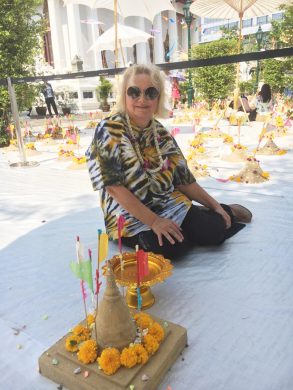 Where are you born and brought up?
Where are you born and brought up?
I was born in Vienna in 1957 and brought up in a village at the outskirts of Vienna, in the province of Lower Austria. At the age of 17, I moved permanently to Vienna, the capital of Austria, which has always attracted me as a thriving social and cultural centre.
Before concluding my studies of Arabic and Political Sciences at the University of Vienna, I was assigned, in the early 80s, to accompany visits of Austrian Ministers to Arab countries and visits of Arab dignitaries in Vienna as an interpreter. I also taught already advanced Arabic at the Hammer Purgstall Academy (a private Institute for Oriental studies, initially the forerunner of the Vienna Diplomatic Academy during the age of Empress Maria Theresia, 18th Century). It was at that time, that I started seriously thinking of developing my career toward the diplomatic track. I was probably 27 years old at that time.
Do you have more diplomats in your family?
None of my ancestors nor other family members have been in the diplomatic service. My father was an agricultural engineer and my mother was a teacher.
How do you look at Thailand today? Have you had any obstacles since you arrived?
The country is a world master in exports, and one of the prime tourist destinations of the world. As chair of ASEAN in 2019, it also instils a lot of dynamics into regional processes of integration and cooperation. Thailand is a connectivity-hub in SE Asia and eagerly heading toward development of the digital economy and society in real terms. Personally, I have not encountered any obstacles in my life in Bangkok. As a diplomatic representative we are treated with the utmost respect, and both the public as well as the private sector are eager to facilitate our lives in many ways.
Do you see any similarities between your country and Thailand?
At a superficial glance it is difficult to find many similarities between a tropical country of Buddhist outlook and a central European country rooted in Baroque traditions. That goes from the climate to vegetation, landscapes or food. Colourful ethnic traditions as you find them in Thailand with the hill-tribes, the Sea Gypsies or different religions are hardly entrenched in a more uniform society such as Austria. However, like Thailand we also have a great diversity of nature and landscapes on our territory, from the alpine high rising mountains with snow almost throughout the year, to fertile flatlands, hilly picturesque wine-growing areas, or lake sanctuaries. Nature, but also culture, with different characteristics, is attractive in both countries. A similarity between Austria and Thailand is certainly the touch of refined sophistication and elegance, e.g. Thai dance perfection in comparison to Viennese classical music culture, delicious food – for the spicy palate in Thailand, and the sweet tooth in Austria – being exquisitely prepared and presented in both countries, and the spirit of refined sociality in outdoor places such as restaurants, coffee-houses or concert halls.
Do you have children?
My son is twenty-four years old and has lost his heart to studying the Chinese language and culture.
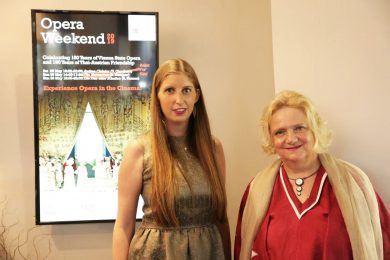 What does an average day look like?
What does an average day look like?
Usually, my days are very varied. As the Head of Mission, I am not confined to one area of work. I have, of course, to monitor the political, economic and social situation in the countries, to which I am accredited, that includes also Cambodia, Laos and Myanmar. I am constantly in motion to foster and strengthen contacts and cooperation in many fields, in a never-ending dynamic process. It includes, of course, high-level meetings and travelling, listening to and participating in intellectual debates but also presence at cultural and social events, and organising that type of activities by the Embassy for our guests.
But I have also to overlook the smooth conduct of the consular business as a general supervisor, or the administration of the Embassy and the residence as well as financial and personnel affairs, certainly aloof of small details, as there are chiefs for each area.
As an Ambassador, I am obliged to be an all-rounder much more than any of my collaborators, even the most senior ones. Usually, in the morning at breakfast, I read the local and international news on papers and the internet. In the office, I focus first on priority tasks and set the daily priorities. I may call in collaborators to discuss specific matters. My agenda provides the flow of the day, from office work and meetings or other activities outside. Many times, I have to attend outside activities in the evening such as – but not limited to – the National Day Receptions of other diplomatic colleagues.
I assume you have some goals you really would like to fulfil before you leave Thailand. What are they?
We are especially active this year, 2019, as we celebrate the 150 years’ Anniversary of our relations with Thailand, inaugurated in 1869 by a Treaty of Amity, Commerce and Navigation between the Kingdom of Siam and the Austro-Hungarian Monarchy. To commemorate the auspicious occasion of 150 years of Friendship, the Austrian Embassy team is organising multifaceted cultural and social events and activities throughout the year. We have started the year with a performance of the famous Viennese boys’ choir on 9th of January and the presentation of the Jubilee programme. Major concerts followed, such as the performance of the Giocoso String Quartet, an ensemble that has been recipient of important international awards such as the Viva Australia 2015 or Aix En Provence Festival 2012 Awards, on 14th of June, and a concert by the Princess Galyani Vathana Youth Orchestra under the baton of the renowned Austrian conductor Prof. Johannes Meissl on 14th of July. On the 25th and 26h of May we combined the celebration of 150 Years’ of Friendship with the 150 years’ Jubilee of the Vienna State Opera by live stream screening of operas from the Vienna State Opera at Bangkok Screening Room. It was a little bit “opera in your living room” with the genuine atmosphere of sparkling wine during the intermission. Our major concerts had a tremendous number of followers with full houses at every event. A number of smaller concerts under the “New Austrian Sound of Music Programme” are organised throughout the year and staged mostly at the multi-functional hall of our new holistic Austrian Embassy building in Sathorn.
This building was inaugurated in 2018 as a flagship project of Austrian innovation and design, combined with Thai building materials and ancient building wisdom. “The New Austrian Sound of Music Programme” is a long-term sponsorship programme to promote and support international performances of promising and award-winning young Austrian musicians who are exceptionally gifted but not so well known on the global stage yet. A jazz ensemble that had been invited by the Austrian Ministry of Foreign Affairs under this programme, also performed at the Hua Hin Jazz festival this year. Apart from music, we offered two important exhibitions of the city of Vienna, on architecture as well as the “smart city concept”, at the annual fair of the Association of Siamese Architects at Impact Arena early May, and a photo-exhibition about schooling opportunities for migrant and hill-tribe children at a charity event at BACC Bangkok and in Chiang May, on 1st and 3rd of March. Film-screenings, wine-and food-tastings, and a forum on student mobility toward the end of the year, as well as an Open House Day to the Embassy and the Residence, are also part of the programme. We also had a classical Austrian children’s book “The grandmother in the apple-tree” (Mira Lobe, drawings of Susi Weigel) translated into Thai and distributed it on various occasions to children’s projects, inter alia the UNICEF-mobile library in the province of Loei.
Apart from our enthusiasm to bring these activities to Thailand, we also work in using the opportunity of the jubilee year to boost our cooperation and exchanges with Thailand in the field of culture, architecture, education – to name a few – on a steady pace and thus harvest a dividend for our overall cooperation, which should be clearly visible latest once my mission in Thailand ends. We have almost a hundred Austrian companies with quite important investments in Thailand, two thirds of them operate production facilities. Some of them support our jubilee year by generous sponsoring. It is my ambition to see during my mission additional economic engagement and investments by Austrian state of the art industries as well as small and medium enterprises in this great country that offers so many opportunities.
Have you been travelling around in Thailand?
I have enjoyed mostly short vacations on a number of coasts, in the Andaman Sea, Koh Samui, Koh Samed, Phuket and Krabi, but also participated in visiting tours organised by the Thai Ministry of Foreign Affairs and the Ministry of Culture, e.g. to Chiang Rai and Buriram. In addition, I have visited Pattaya, a city with an important Austrian community, and Chiang Mai. Furthermore, I went on missions to Nong Bua, where an Austrian business established a biomass-powerplant, as well as Songkhla and Loei.
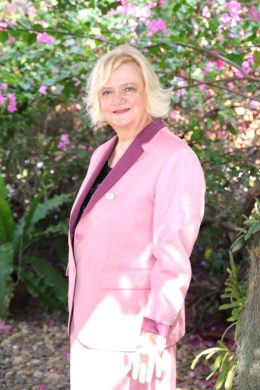 What are your favourite destinations in Thailand?
What are your favourite destinations in Thailand?
My favourite destinations so far, are Songkhla and Chiang Mai without preference for the North or the South, which are both marvellous places in this beautiful country. In Songkhla, I love the incomparable ambiance of a relaxed ancient city with a unique urban configuration intertwining different cultures, such as Chinese, Muslim and Thai, next to a large and beautiful inland-lake. In Chiang Mai it is the lush mountains, the hilly and airy outskirts, the ancient temples and the refined Lanna-culture, which I find very attractive.
What do you do if you have a day off?
I always like to read and I have adopted a new method of entertaining myself and learning from books: I borrow them now – and started doing this from Thailand – on a regular basis from the Ministry of Foreign Affairs’ library. I swim on a daily basis in the pool at the residence. I also enjoy the lush tropical garden at the residence.
When I go out, I like to see films or watch expositions, especially of contemporary arts. I was happy to enjoy a guided tour to important sites of the Bangkok Art and Culture Biennale last winter. I adore the Museum of Contemporary Art, which enthrals visitors by fusing a very Buddhist inspired artistry with daring and impressive expressions of modern art. The museum is hardly advertised in tourist guides and seems to me – both from the viewpoint of architecture as well as from the art on display – a hidden pearl in the outskirts of Bangkok. Of course, I also enjoy tours on the Chao Praya, preferably on a long tail boat. I would never miss a dinner on a dining boat invitation.
How many Austrians live in Thailand and why has it become a desirable destination for them?
The number of Austrians in the four countries which our Embassy covers (including Cambodia, Laos, and Myanmar) are estimated to be around 4,000, most of them live in Thailand. Thailand became an attractive destination for Austrian tourists in the 70s, when overseas tourism started on a larger scale. It was, of course, in the beginning famous for its beaches. However now cultural and eco-tourism have also caught up. As to those co-nationals living here on a permanent and semi-permanent basis, they are – apart from entrepreneurs – mostly pensioners. People in retirement have a special predilection for Thailand because of the lovely warm climate, the affordable prices, the excellent food and the friendliness of the host people.
Do your country and Thailand have any exchange programmes for students today?
We have, indeed, a very active exchange programme under the ASEAN-UNINET network. It combines 83 universities of 18 countries. Austria and Thailand are especially active, with 19 Austrian and 18 Thai universities participating. The network aims at providing financial backing for the internationalisation of study and research by bi-and multilateral research-projects, joint laboratories, scholarships and the organisation of international workshops, conferences, summer and winter schools. Furthermore, we are happy with the longstanding fruitful cooperation between Thailand and Austria in the field of music and the performing arts. Several Thai music institutes and faculties, Mahidol-University, Chulalongkorn, the Princess Galyani Vathana Institute of Music, – you name them – have been collaborating with Austrian music universities and Institutes, sometimes for decades, through the exchange of students and teachers.
Every year some of most exceptionally talented Thai music students qualify for the very competitive Ernst Mach Music Grant under the ASEA-UNINET academic cooperation programme and thence are eligible to study at one of Austria’s most renowned music universities for up to one year. Earlier this year, two Thai boys passed the very competitive audition for the world-famous Vienna Boys Choir. The Vienna University of Music and Performing Arts has especially close ties with Thailand by receiving His Majesty the late King Rama IX in the ranks of its 36 honorary members. Only one other Asian, the Indian conductor Zubin Metha, shares this honour. The Austrian University of Applied Arts and Silpakorn University work under a joint MoU to establish a Thai regional Institute for renovation and conservation, exchange students and hold reciprocal masterclasses on a regular basis. The scholarship programme of the ASEAN UNINET network is also the main reason, why I meet in Thailand so many prominent alumni of Austrian universities. Those who studied in Austria and are today in high places of civil service, science or the economy, are more than a hundred in number.
If you could choose what would be your next destination?
My next destination will be retirement, so no way to choose. But if I had the choice of another Embassy, I would prefer a place with a mythological and archeological heritage, as have been all the countries where I have served as Ambassador to date (Cyprus, Mexico, Thailand).
Any special memories that you treasure?
The overwhelming moment was, of course, the auspicious coronation of His Majesty the King Rama X earlier this year. The audience of His Majesty granted on this occasion for the diplomatic corps, and the following reception at the Grand Palace, with its unique flower arrangements, exquisite fruit carving decorations and delicious dishes of the palace tradition will remain unforgettable for me forevermore.
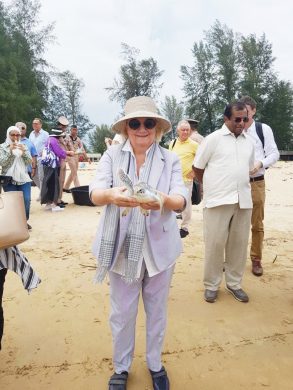 Do you regularly meet up with your community?
Do you regularly meet up with your community?
We have an Austrian – Thai Society with the peculiarity, that it does not only unite the Austrian expatriates, but includes also Thais with a special affinity to Austria in the group, e.g. business people and or the already mentioned Thai alumni. I meet with them on a regular basis, and we also hold Embassy premises at their disposal for their meetings and other activities. The Society organises a yearly “Heurigen” (traditional buffet with Austrian wines), which I like to attend if there is no collision with more cogent activities on my agenda. We offer an annual National Day Reception in Bangkok and in Pattaya, where I meet many compatriots. I also pay specific visits to outstanding Austrians, who excel in particular activities in the country, e.g. the Austrian Director of an international school in Chiang Mai, an Austrian Buddhist nun who introduces Westerners to meditation practices, an Austrian entrepreneur who established a biomass gasification plant etc.
What are the most important tasks as an Ambassador?
To promote my country as an attractive destination for cooperation and exchange in Thailand and the other countries of my circumscription, and to relate the live realities from Thailand, Cambodia, Laos and Myanmar back to Austria in a way that facilitates the fostering, deepening and strengthening of relations and friendship. This does not only go for government – government contacts, or business-relations, but all kind of contacts especially on a people-to-people-basis.
What would you like to leave our readers with?
I think an Embassy is a turning table for the overall relations between countries and within the international community. Therefore, the Heads of Mission are not confined to one or the other activity, but must be well connected and active in many fields. Openness and flexibility is of utmost importance for “The Captain” of an Embassy.
I try my best to live up to this expectation.


